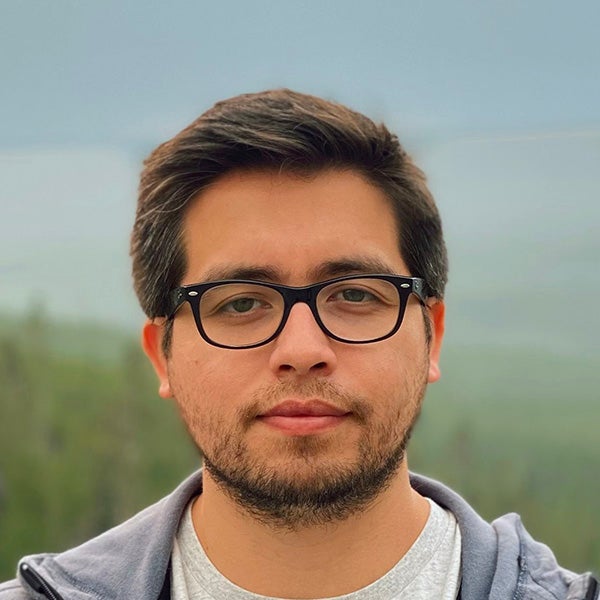The Ken Kennedy Institute's July Member of the Month: Sebastian Perez-Salazar, Assistant Professor of Computational Applied Mathematics & Operations Research.
Dr. Sebastian Perez-Salazar is an Assistant Professor of Computational Applied Mathematics & Operations Research at Rice University. He obtained his Ph.D. in the multidisciplinary Algorithms, Combinatorics, and Optimization (ACO) program at the Georgia Institute of Technology, as well as his B.Eng. and M.S. in Applied Math from Universidad de Chile. He works on models and applications of decision-making under uncertainty, and much of his current work is motivated by applications in cloud computing and e-commerce with an interest in mathematical optimization.
How do you explain your research in one sentence?
Inspired by problems in different industries, such as cloud computing or e-commerce, I study new models that capture different ways of facing uncertainty in time-based situations and offer robust solutions which are simple to implement and interpret for the final end-user.
How does your work impact the community at large?
Supporting companies to use their resources more efficiently leads to improved services at lower costs for end-users. In time-based problems, one of the major issues is modeling and dealing with uncertainty. For instance, in cloud computing, it has been observed that demand for resources (CPU, RAM, etc.) does not follow predictable patterns. In one of my works, we digressed from known time-based models and introduced a new data-driven model that allocates resources near-optimally. Many of these ideas were implemented, helping the company use its resources more efficiently.
What kind of collaborations are you looking for at Rice and within the community?
I would like to work on new problems at the interface of optimization and decision-making under uncertainty. My background in optimization and operations research has given me a good sense of the former, and I would like to augment my perspectives with machine learning approaches, in particular, in applications to energy and healthcare.
How do you see computation and data advancing in the future?
Data is crucial in operations research, particularly in sequential problems where data are learned one at a time. One of the main challenges in sequential decision-making is dealing with noisy/corrupted/missing data. In theory, we know how to solve these problems using robust methodologies; however, these methods are often not scalable. Hence, algorithmic and technological improvements in computation will aid significantly in finding fast solutions to essential problems in society and industry.
How do you see the Ken Kennedy Institute supporting you and/or your research?
The Ken Kennedy Institute offers many opportunities for network and outreach. I am confident that the Ken Kennedy Institute will support my research directly or indirectly through different opportunities (support for workshops, fellowships, partnerships with industry, etc.). For instance, the Ken Kennedy Institute helped us advertise Adam Wierman's Shell Lecture last semester.
What is your favorite book or movie?
It’s hard to pick one, but at this time, I would say “The Aleph and Other Stories” (“El Aleph” in Spanish) by Jorge Luis Borges. “El Aleph” is a series of short stories touching on different aspects of the notion of infinity in mathematics. Two of my favorite stories in the book are “The Immortal” and “The House of Asterion.”
Do you have any words of inspiration you would like to share?
"I have a day. If I know how to make the most of it, I have a treasure."
_
See Sebastian's Rice Profile here.

